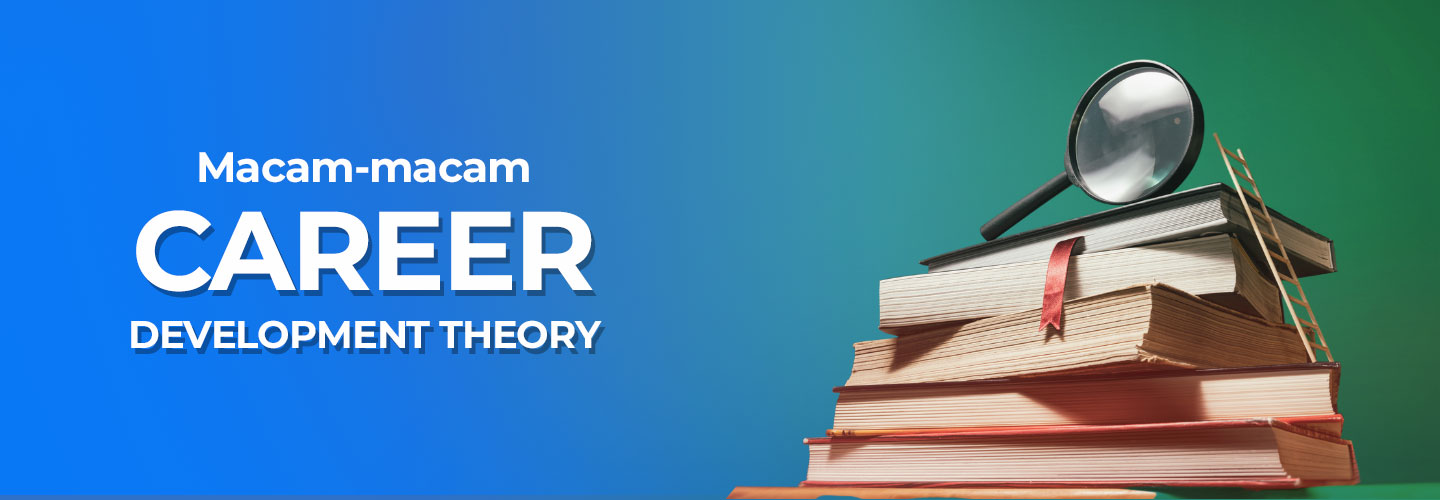ESG Center
Focus on driving sustainable business, practices through expert consulting, training, advising, assistance, and innovative solutions in Environment, Social, and Governance (ESG).

An employee who has worked and held a position for years seems to be less relevant to the current situation. As time progresses, employees want to get more out of their professional lives.
Companies are also thinking more about career development plans to keep employees motivated. Usually, a career development program is created so that employees continue to develop as the company develops.
Career development can be done in various formats, both formal and informal. The series is a process for individuals to assess their abilities and career journey in accordance with the goals they want to achieve.
To be able to implement the right career development program for employees, there are various theories that can be used as references. The following are some of the theories that have the most influence on the career development process.
This theory was created by Frank Parsons in the early 1900s, but was only published after he died in 1909. Another name for this theory is also known as career counseling.
Parsons' career development theory consists of two main characteristics, namely traits and factors. Factors refer to jobs and positions, while traits refer to the qualities of people seeking career opportunities.
According to this theory, a professional can test, interview, and observe a person to assess results and compare them with available jobs. Based on these findings, the most suitable job will be searched for.
Albert Bandura created this career development theory by relying on a person's personal aspects to build a career path.
Unlike other theories, this theory places more emphasis on a person's past experiences. Behind these experiences, someone can find things that can motivate someone.
Once you know the reasons for someone's motivation (e.g. praise, controlling external factors, competitiveness with peers), you can determine potential careers for them.
John Krumboltz developed a theory based on the main concepts of Bandura's theory. Krumboltz used it to develop his own theory covering career counseling.
Rather than focusing on inherited traits, Krumboltz's theory is based on the idea that an individual's development and experiences throughout their life influence which careers are best suited to them.
Krumboltz's theory focuses on inherited behavior, survival, learning through consequences, and skills from work experience. According to the theory, these factors and experiences determine the best fit for an individual and his career.
The "needs" approach developed by Ann Roe assesses the structure of needs and values that each individual has based on experiences in early life and childhood. However, this theory also takes into account environmental and genetic factors, which need to be considered to find a career that suits one's needs.
This theory includes six skill levels ranging from unskilled to professional/managerial. From there, Roe also included eight different important job categories to expand including science, technology, arts and entertainment, outdoor work, services, business, managerial, and general culture.
This theory is based on Erikson's eight psychosocial stages. In addition, individuals' lives are included as important for career development as their job choices.
To help individuals find their career path, there are several main factors that make up this theory. The first stage is called anticipation, namely the individual is going through a series of stages of exploration, crystallization, choice and clarification.
The next second stage is called implementation which involves induction, reform and integration steps.
When conducting a career development program for employees, the most important thing is to ensure that the purpose of the assessment is personal career development. The series of processes carried out for career development programs may involve ability testing to find employee interests that also match their abilities.
INSIGHT AND KNOWLEDGE
RECOMMENDATION ARTICLES